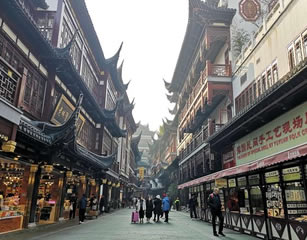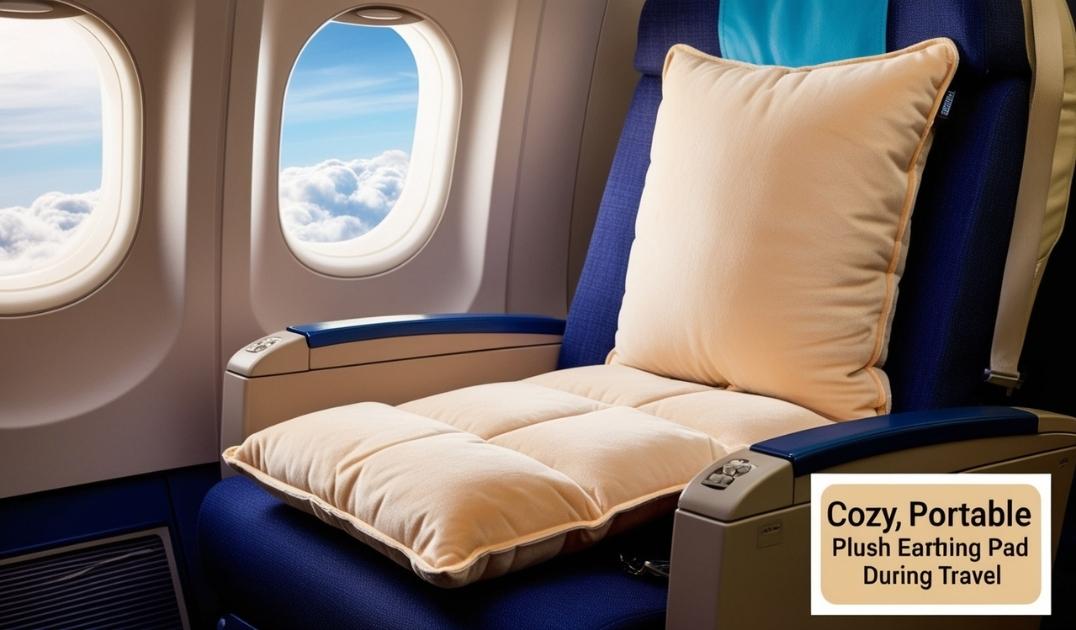Traveling abroad opens up incredible opportunities for exploring new cultures, tasting exotic foods, and, of course, shopping for unique items you can’t find at home. But shopping in a foreign country comes with its own set of challenges, from navigating unfamiliar prices and currencies to knowing what’s truly a good deal. If you want to avoid tourist traps and maximize your budget, learning how to shop smarter abroad is essential. Whether you’re eyeing handcrafted souvenirs, designer goods, or just browsing local markets, smart shopping techniques can help you make the most of your experience.
In this guide, we’ll walk through 10 practical tips for shopping abroad that can save you money, time, and stress. From using cash instead of cards to hunting down the best times and places to shop, these travel tips are designed to help you avoid common pitfalls and make the most of your overseas shopping adventures. Let’s dive into these tried-and-true tips so you can shop smarter, score great finds, and bring home something truly special from your travels.
10 Practical Tips for Shopping Abroad To Make it a Better Experience
1. Do Your Research on Local Markets and Customs
Before diving into shopping, spend a little time researching the best markets, malls, and local shops at your destination. Learning about the culture and customs around shopping in that country can prevent misunderstandings and help you respect local traditions. In some cultures, haggling is expected, while in others, it can be considered rude. Check travel blogs, online forums, or ask locals for recommendations on where to find authentic goods rather than touristy souvenirs.
- Tip: Use platforms like TripAdvisor, Lonely Planet, or Reddit’s travel forums to gather insights on the best shopping areas, as well as what items are known to be of high quality in each region. Search for specific markets, mall reviews, and unique shopping neighborhoods for local recommendations.
- Benefit: By pinpointing reputable shops and markets before you go, you’re more likely to avoid overpriced tourist traps and find authentic products. Researching customs can also help you navigate cultural nuances, like how to greet shop owners or when it’s polite to haggle, ensuring a smoother and more respectful shopping experience.
2. Familiarize Yourself with Currency and Exchange Rates
Knowing the currency and exchange rate is crucial for staying within your budget while shopping abroad. Download a currency converter app like XE or Revolut to make quick calculations and stay updated on exchange rates, as they can fluctuate. Some shops may offer to convert prices to your home currency, but this often comes with extra fees. Avoid these “convenience” conversions by paying in the local currency whenever possible.
- Tip: Avoid relying solely on airport exchange counters, as they often have inflated rates. Instead, consider converting a small amount for immediate needs, then using a local bank or trusted currency exchange outlet for better rates. Apps like XE or Revolut not only help convert currency but can also track real-time changes, making it easier to understand what you’re actually spending.
- Benefit: Having a clear idea of the currency value will prevent you from overspending or underestimating costs. Being familiar with the rates also gives you confidence to negotiate when needed, and you’ll feel more comfortable making on-the-spot financial decisions in shops or markets.
3. Choose Cash Over Cards to Avoid Extra Charges
While credit cards are convenient, they often come with foreign transaction fees of around 1-3%, which can add up quickly if you’re not careful. Cash is usually accepted everywhere and can even get you a better price, especially at markets or small shops. If you must use a card, consider getting a travel-friendly credit card with no foreign transaction fees.
- Tip: Before your trip, notify your bank about your travel plans so they don’t flag foreign transactions as suspicious. Research local ATM networks that partner with your bank to minimize withdrawal fees. For added security, withdraw a reasonable amount of cash and spread it across your luggage, wallet, and other secure areas.
- Benefit: Using cash helps you stick to a set budget, since you’re more aware of physical spending versus swiping a card. Cash also makes you more adaptable in places that don’t accept cards, like small markets, taxis, or street vendors. You’ll avoid potential hidden charges, like dynamic currency conversion fees, which can increase costs by 5-10%.
4. Check for VAT Refunds and Take Advantage
Many countries offer VAT (Value Added Tax) refunds for tourists on items purchased above a certain amount. To qualify, you’ll usually need to show your passport at the time of purchase and request the VAT paperwork. Keep your receipts, fill out the forms, and visit the VAT refund desk at the airport on your way home to claim your refund. This can be a great way to save on big-ticket items.
- Tip: Look up the VAT refund threshold in the country you’re visiting (usually between $50–$200 in spending). Some stores may have signs indicating they’re “VAT refund” eligible, so ask if they offer this service. Keep all purchase receipts, and be sure to collect the refund paperwork at the store.
- Benefit: Depending on the country, VAT refunds can range from 5% to 25% of the purchase price, which can mean significant savings on big-ticket items like electronics, jewelry, or designer goods. This is especially helpful if you’re purchasing items that are significantly cheaper abroad than at home.
5. Shop Locally to Find Unique and Authentic Goods
It’s tempting to head to big, brand-name stores when traveling, but you can find more unique and meaningful items by exploring smaller, local shops and markets. Locally made goods are often more affordable, and you’re supporting local artisans. Plus, these items make for more memorable and authentic souvenirs.
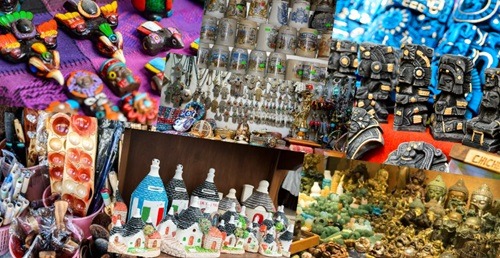
Authentic Souvenirs From Around the World
- Tip: Seek out artisan shops, local markets, and stores known for traditional crafts to find unique items like ceramics, woven textiles, or handmade jewelry. Instead of department stores, ask locals about where to buy specialties, like spices in Morocco or lacquerware in Vietnam.
- Benefit: Locally sourced goods not only support the economy but also provide you with genuine, one-of-a-kind souvenirs. These items often have a story or cultural significance, making them more meaningful than mass-produced items found in tourist shops.
6. Haggle Wisely and Respectfully in Markets
Haggling is common in markets across many countries and can be a fun way to engage with locals. Start with a smile and a friendly approach, and don’t be afraid to counter the initial price with a lower, reasonable offer. Remember, the goal is a fair price that both you and the seller are happy with. Some places, like high-end stores or chain retailers, won’t allow bargaining, so save this for markets or street vendors.

- Tip: When haggling, start by offering around 50-60% of the initial asking price and gauge the seller’s response. If they meet you in the middle, you’re likely close to a fair price. Observe other locals to see how they approach haggling, and remember to stay calm and friendly rather than confrontational.
- Benefit: When done respectfully, haggling can lead to better prices and a memorable experience interacting with locals. It also gives you a sense of accomplishment, knowing you’ve worked for a fair deal and potentially saved up to 20-50% on your purchases.
7. Time Your Shopping Right for the Best Deals
Timing can make a big difference when it comes to shopping abroad. For instance, in some countries, items are marked down towards the end of the day, especially at open-air markets. Alternatively, many shops hold sales at specific times of the year—often during or right after major holidays or tourist off-seasons.
- Tip: Arrive at markets later in the afternoon, as sellers may be more willing to offer discounts to avoid carrying inventory back home. If you’re traveling during an off-peak season, there’s a higher chance of finding clearance items or sale events in major shopping districts.
- Benefit: Shopping at the right time can score you discounts that may not be available at other times of the day or year. Plus, fewer crowds during off-peak times can make for a more enjoyable experience, allowing you to take your time exploring.
8. Inspect Items Carefully Before You Buy
It’s easy to get excited about a unique item you find abroad, but take a moment to inspect it before buying. Check for quality and authenticity, and ensure there are no hidden flaws or damages. This is particularly important for delicate items like pottery, textiles, and electronics. If you’re buying branded goods, make sure they are genuine and not knockoffs, as fake items can be common in tourist areas.
- Tip: Take a few moments to examine the quality, stitching, materials, or authenticity of any item. If you’re buying art or antiques, ask about provenance or certification. For electronics, test items in-store and ensure they are compatible with your country’s voltage requirements.
- Benefit: Ensuring quality before buying will help you avoid the hassle of returns or repairs later. You’re less likely to come home with items that are defective, fragile, or unusable, so you can feel confident in the durability and quality of what you’re bringing back.
9. Pack Wisely and Leave Room for New Purchases
When packing for your trip, leave extra space in your luggage for any items you might buy abroad. This saves you from needing to buy an extra bag at the last minute or paying for costly shipping fees. Remember that most airlines have weight and size restrictions, so packing lightly from the start will help you avoid these issues.
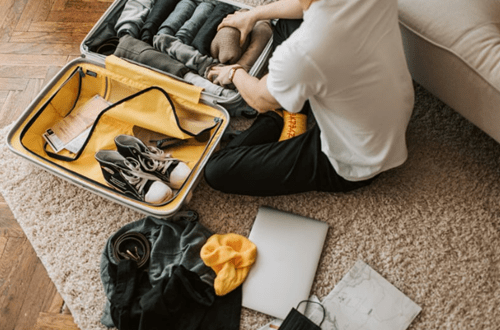
- Tip: Pack versatile clothing items that can be layered or mixed to save suitcase space, and use packing cubes to organize items more efficiently. Bring a foldable duffel bag for any extra purchases and keep it in your suitcase until needed. If you anticipate fragile purchases, pack extra bubble wrap or clothes that can be used to protect delicate items.
- Benefit: Having extra space will prevent you from having to purchase additional baggage on the spot or pay for costly shipping fees. You’ll also be prepared for last-minute finds without compromising your luggage weight or leaving items behind.
10. Learn About Customs Regulations and Duties
Bringing items home can sometimes involve extra customs fees or even restrictions, depending on what you’re purchasing and the country you’re returning to. Familiarize yourself with your home country’s customs regulations to avoid unexpected charges or, worse, confiscation of your goods. Items like alcohol, tobacco, and certain types of foods often have strict import limits, so do your homework beforehand.
- Tip: Check customs regulations for any restricted or taxed items in advance. You can usually find this information on government or customs websites, and some travel apps also offer guidance. It’s a good idea to save receipts and declare items honestly to avoid fines or confiscation.
- Benefit: Familiarizing yourself with customs rules prevents unexpected costs and ensures that your souvenirs make it home. Following these guidelines will also save time at customs and allow for a smoother journey home, free from fines or delays.
Bonus Tips to Enhance Your Shop and Travel Experience Abroad
These additional tips for shopping abroad can make a real difference in the ease, enjoyment, and overall quality of your shopping experience.
11. Download Shopping-Friendly Apps for Easy Navigation
When exploring shopping districts or hidden markets, it’s easy to get lost. Apps like Google Maps, Citymapper, or maps.me can be helpful for navigating unfamiliar cities and pinpointing specific stores or markets. Other apps, like Yelp or Foursquare, provide reviews and recommendations, so you know if a place is worth visiting. Many travelers also recommend downloading a dedicated shopping app or using the “Maps” tab in Google to save key shopping locations before you arrive.
- Tip: Before leaving your hotel or accommodation, download offline maps of the areas you plan to visit. This way, even if you lose service, you’ll still have directions at your fingertips.
- Benefit: You’ll waste less time wandering and avoid missing out on hidden spots, especially in cities known for sprawling market districts.
12. Set a Budget and Track Spending to Avoid Overspending
It’s easy to get carried away when shopping abroad, but setting a daily or trip-wide budget can help you prioritize meaningful purchases without overspending. Tracking your spending each day also keeps you within budget, making sure you still have money left for the rest of your trip. Consider using an app like Trail Wallet or Spendee to track purchases by category.
- Tip: Allocate separate budgets for souvenirs, luxury items, and food shopping to better control your expenses. Keep receipts for larger items so you can see where your money is going.
- Benefit: You’ll avoid spending more than intended, giving you peace of mind and keeping other aspects of your trip enjoyable without financial stress.
13. Bring a Portable Luggage Scale to Avoid Baggage Fees
Shopping often means extra weight in your luggage, and airlines are strict about baggage limits. A portable luggage scale can help you shop and pack better by checking your luggage weight in advance so you don’t get hit with overweight fees at the airport. These pocket-sized scales are easy to pack and can save you money, especially if you plan on buying heavier items or multiple souvenirs.
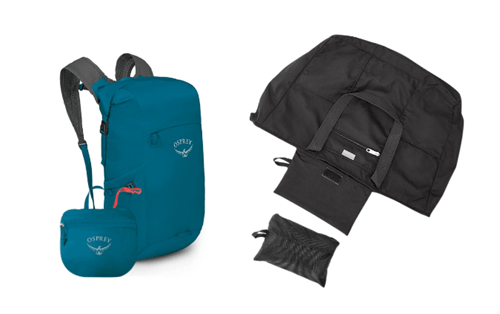
- Tip: Weigh your bags before heading to the airport, and consider mailing home heavier items if your luggage is over the limit.
- Benefit: You’ll avoid costly baggage fees and won’t have to leave anything behind at the last minute. Plus, it gives you more freedom to shop without worrying about weight limits.
14. Learn Basic Shopping Phrases in the Local Language
Speaking even a few words in the local language can make shopping more enjoyable and might even help you get better prices. Phrases like “How much does this cost?”, “Can you lower the price?”, or “Thank you” show respect and help you connect with local vendors. Many language apps like Duolingo or Google Translate can help you practice these phrases before your trip.
- Tip: Save a few essential phrases on your phone for quick reference. Many translation apps also offer offline options in case you’re without Wi-Fi or data.
- Benefit: You’re more likely to engage positively with vendors and may even receive discounts for the effort. Locals often appreciate visitors who make an effort to speak their language, which can lead to friendlier interactions.
15. Use Price Comparison Apps to Spot Real Deals
Sometimes, it’s hard to tell if you’re getting a good deal, especially with foreign currencies and unfamiliar brands. Apps like ShopSavvy and PriceGrabber allow you to scan barcodes or search items to see how prices compare. While it’s not always possible in markets, these apps can be particularly useful in larger stores that carry internationally known brands.
- Tip: Use these apps before making any big purchases, like electronics or luxury goods, to confirm you’re getting a fair price. Just be aware that some items may not show up if they’re unique to a specific country.
- Benefit: You’ll avoid paying more than you would at home, helping you feel confident about your purchases and potentially saving a significant amount of money on pricier items.
Conclusion
Shopping and traveling abroad can be one of the highlights of any trip, allowing you to bring home items that capture the spirit of the places you’ve visited. By following these 10 tips, you can shop smarter abroad, scoring unique finds while avoiding common traps that can lead to overspending or buyer’s regret. These travel and shopping strategies—whether it’s paying in local currency, haggling wisely, or knowing when and where to shop—will ensure that your overseas purchases are both meaningful and cost-effective.
Remember, a little research and preparation can go a long way in enhancing your shopping experience overseas. As you wander through bustling markets or elegant boutiques, these tips will help you feel more confident and savvy in your purchases. Shopping smarter abroad means embracing the thrill of finding something special while also making thoughtful, budget-conscious choices. Happy travels and happy shopping!





